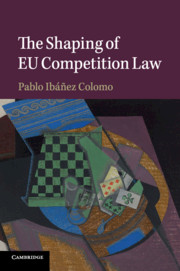6 - The Shaping of EU Competition Law: Past and Prospects
from Part III - Implications
Published online by Cambridge University Press: 23 June 2018
Summary
- Type
- Chapter
- Information
- The Shaping of EU Competition Law , pp. 273 - 327Publisher: Cambridge University PressPrint publication year: 2018

